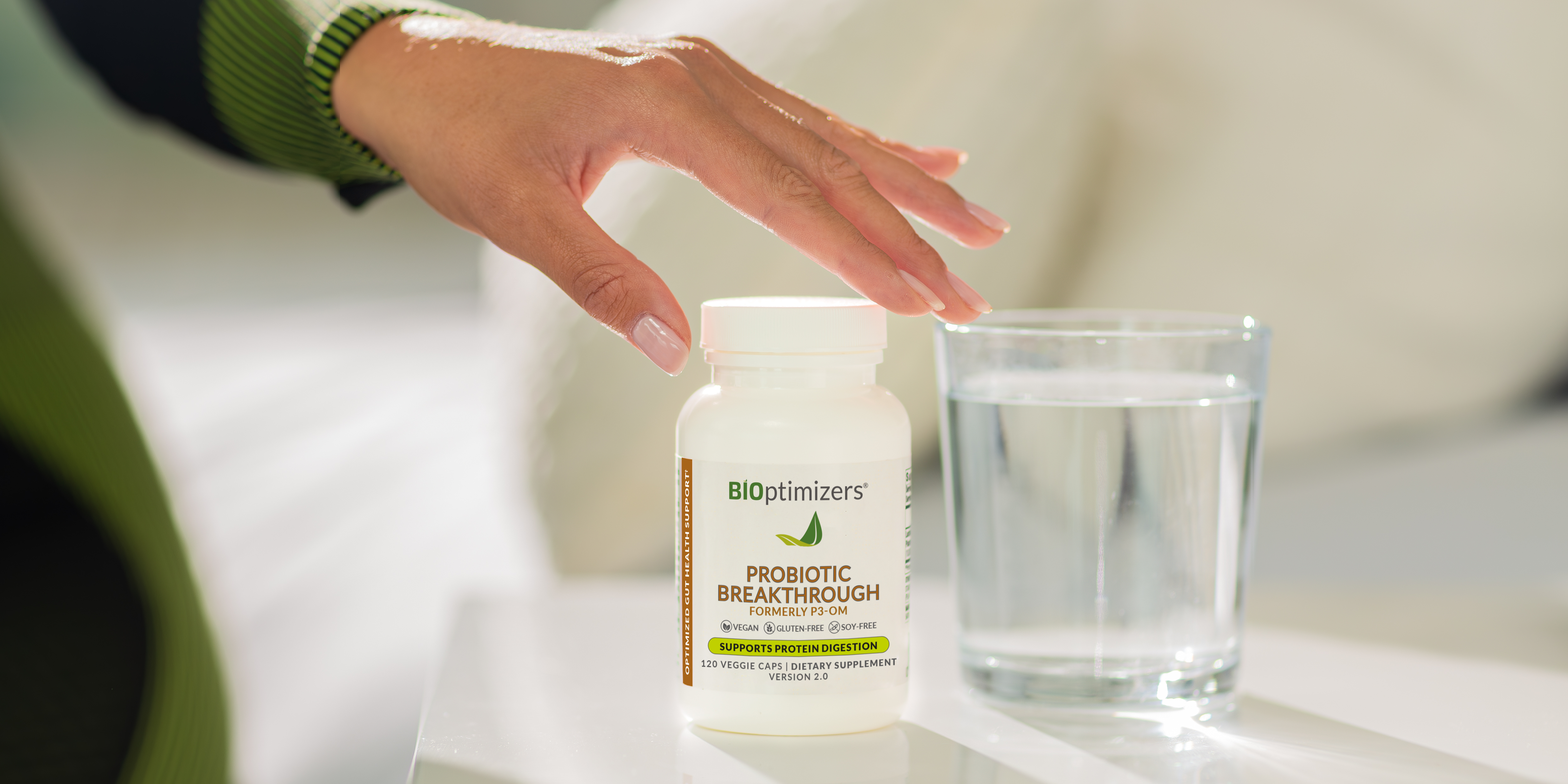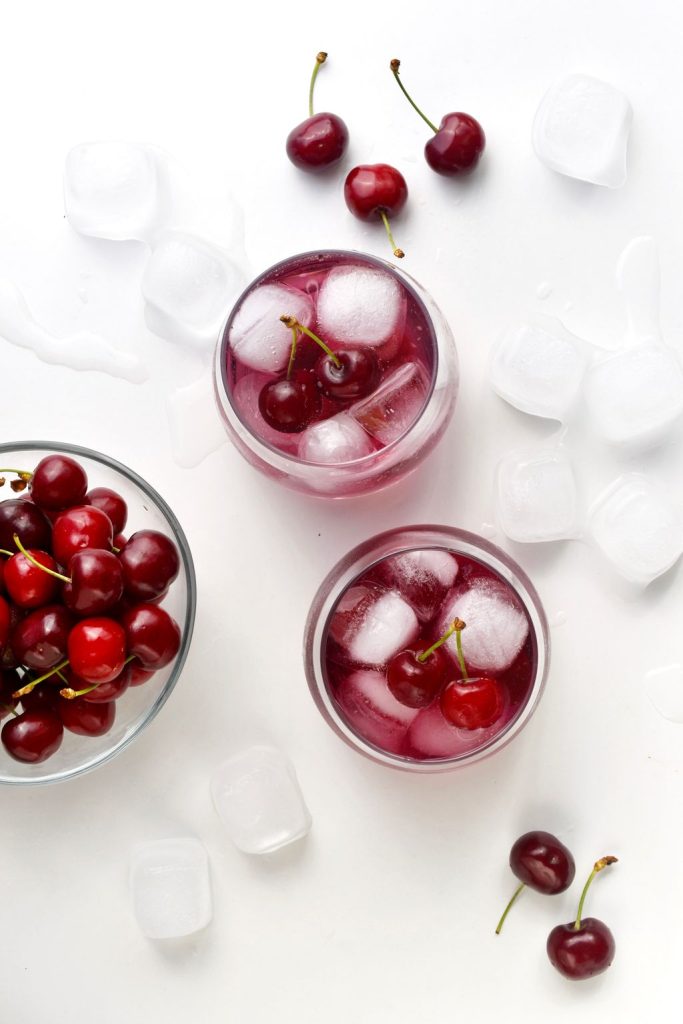Constipation From Protein Shakes and How to Avoid It

Protein shakes are undoubtedly a staple for many fitness and health enthusiasts, offering a convenient and efficient means to bolster protein intake and foster lean muscle growth. However, despite their nutritional benefits, some protein powders cause constipation. In this article, we’ll explore why protein shakes may cause constipation and provide practical tips on how to…

Protein shakes are undoubtedly a staple for many fitness and health enthusiasts, offering a convenient and efficient means to bolster protein intake and foster lean muscle growth. However, despite their nutritional benefits, some protein powders cause constipation.
In this article, we'll explore why protein shakes may cause constipation and provide practical tips on how to avoid this issue, ensuring your fitness journey remains smooth.

How Can Protein Shakes Cause Constipation?
Not all protein shakes cause constipation. Also, not everyone gets constipation from protein shakes. The effect is individual.
Gut Irritation
Protein shakes are unavoidably processed food. They’re a category of dietary supplements that can fulfill the dietary needs of some people. Because it can be hard to make protein powders dissolve in water or taste good, many manufacturers add food additives like texturizers or emulsifiers to make them palatable.
However, both food additives and the protein’s own base ingredients can irritate the gut. Some people respond to gut irritants with diarrhea or bloating, while others get constipated.
Other side effects may also be associated with it, like headaches, nausea, acne, and stomach pain. These reactions may not be detectable in blood tests. If these negative symptoms occur, you should stop taking that protein powder product and see if the symptoms go away.
Now, let’s look at other ways protein shakes can leave you feeling backed up.
Low Fiber Intake
Some protein powders, like whey, soy, and casein, are generally low in fiber unless otherwise added. While choosing a low-fiber protein option may be necessary for some people, not getting enough fiber overall could increase the chances of becoming constipated.
Because protein is so filling, it may prevent you from grabbing other fiber-rich foods that might otherwise help move things along.
Fiber softens stool, increases bulk, and aids bowel movements by retaining water and promoting movement through the digestive system. Some types of fiber, psyllium, form a gel in the gut, soften stool, and relieve constipation.
A meta-analysis of five studies explored the effects of dietary fiber intake on constipation in children and adults. Participants consumed varying amounts, from 100 mg/kg (45 mg/lb) in children to 12.5g in adults. Those consuming fiber had significantly more stools than those who did not.
Too Much Fiber (Bulking) and Not Enough Water

While fiber can be wonderfully helpful in preventing and relieving constipation, especially when taken in sufficient amounts, it's important to ensure adequate water intake alongside fiber consumption.
Fiber generally bulks up stool and makes it softer, facilitating easier and quicker passage. However, some fiber achieves this by absorbing water from around them, including in the bowels. For example, pea protein readily absorbs water and thickens up. Without enough water intake, all that bulking can worsen constipation.
When stool has less water, it gets thicker: liquid stool is about 90% water, soft stool is about 77%, formed stool is about 75%, and hard stool is less than or equal to 72% water. This means a big difference: going from 90% to 72% water makes stool 240 times thicker.
When you don’t drink enough water along with fiber, it might contribute to dry stool mass, reducing the percentage of water in the stool and leading to harder stools that are difficult to pass.
A study of 117 individuals with constipation explored the effects of water consumption and fiber.
Participants consumed 25g of fiber daily for two months. Group one drank around one liter of water daily, while Group two drank 2 liters of mineral water daily.
Those drinking 2 liters of water per day experienced significantly more frequent stools.
Changes in Gut Microbiota
Our stomach and intestines break down different types of proteins in our food into smaller parts called peptides and amino acids. These smaller parts can affect the types of bacteria living in our gut.
When not fully broken down, proteins end up in the large intestine in a complex form that still contains proteins. In the large intestine, these proteins become food for certain bacteria, which break them down through processes like fermentation and putrefaction and changing the diversity of your gut bacteria.
A meta-analysis explored the relationship between protein consumption and changes in gut bacteria. Researchers found that dietary proteins from animal and plant sources play a role in shaping the gut microbiome.
Plant proteins, such as those from soybeans, can promote the growth of beneficial bacteria like Lactobacilli and Bifidobacteria while reducing Bacteroidetes. Fermented soy and whey protein can enhance various beneficial bacteria in mice.
However, animal proteins are also important, as they are more easily digested and may support a more balanced gut microbiota composition. For instance, dairy and meat proteins have been associated with increased levels of Lactobacillus and Bifidobacterium compared to soy protein.
Some studies show that a high-protein diet alters the gut microbiome by increasing certain bacterial metabolites like SCFAs in the colon and reducing the abundance of some beneficial bacteria. This can create a favorable environment for suboptimal bacteria and potentially throw your gut health off.
Conversely, low-protein diets may also negatively affect gut health by altering the abundance of beneficial bacteria and increasing the inflammatory response. When your gut bacteria are out of balance, it’s called dysbiosis.
Researchers believe dysbiosis might cause constipation by changing serotonin transporter (SERT) activity. About 80% of serotonin in your body is in your gut. Generally, serotonin increases gut movement. SERT is a protein in the gut that grabs excess serotonin (a chemical that helps move your intestines) and pulls it out of places where it can work, slowing down how fast things move through your intestines leading to constipation.
Too much SERT activity can take away too much serotonin from the gut, making the muscles in the intestines less active and potentially causing constipation by reducing the movement that pushes food through.
While lifestyle and genetic factors are also at play, finding the right balance of protein intake is crucial for maintaining a healthy gut microbiota and overall health.
Lactose

If you are sensitive to lactose or milk protein, whey or casein protein powder could contribute to constipation.
When you consume certain foods, particularly those containing lactose, you might experience gassiness due to the gases and toxins produced by bacteria in your gut. These bacteria, such as Methaninobrevibacter smithii, thrive in low-oxygen environments within your gut.
In these oxygen-deprived conditions, sugars present in the food you eat can undergo fermentation by these bacteria, producing gases like hydrogen, methane, and hydrogen sulfide. Methane has a notable effect on gut motility, slowing down food movement through your intestines. This slowdown can lead to feelings of constipation.
Additives
Some protein powders are filled with food additives that could upset your gut and leave you constipated. Some commonly found additives that may cause trouble include:
- Artificial sweeteners
- Emulsifiers (thickeners)
- Food Colorants
- Preservatives
Artificial Sweeteners
While human trials are needed, researchers believe artificial sweeteners may slow you down by increasing incretin secretion. When you eat, incretins are chemicals the body makes to help manage blood sugar after eating.
One incretin, glucagon-like peptide-1 (GLP-1), slows down gastric emptying to help control your postprandial (after-meal) blood glucose levels. Artificial sweeteners may increase incretin beyond normal levels thereby slowing down gastric emptying to the point of constipation.
A study of 22 healthy participants explored how some artificial sweeteners affect GLP-1. Participants drank diet soda sweetened with sucralose or acesulfame-K or carbonated water. Those drinking either diet soda had higher levels of GLP-1 than others.
It’s important to note that while these artificial sweeteners may affect the body this way, more research is needed to fully understand their effects.
Opting for natural sweeteners may help avoid this complication. In Protein Breakthrough, we use natural sweeteners, monk fruit, and stevia, which are gentle on your gut and delicious.
Emulsifiers, Colorants, and Preservatives
These three additives may disrupt homeostasis in your gut, causing dysbiosis and, ultimately, constipation.
Emulsifiers, commonly seen as lecithins, are often added to protein powders and other foods to combine otherwise unmixable ingredients like oil and water and create a smooth texture. The problem is that they might not be so good for gut health.
Titanium dioxide is a commonly used food coloring. Animal studies suggest titanium dioxide might trigger immune responses in the gut. This raises concerns about its potential to disturb the balance of the gut, where these cells play a crucial role in maintaining stability.
Preservatives like sodium benzoate, sodium nitrite, and potassium sorbate help increase shelf-life but may shift your gut microbiota. A study examined their effects on cultures of human gut microbes.
Interestingly, bacteria known for reducing inflammation, like Clostridium tyrobutyricum and Lactobacillus paracasei, were more affected by additives than some other bacteria increasing inflammatory response, such as Bacteroides thetaiotaomicron or Enterococcus faecalis.
This suggests that even small amounts of additives over time could change the mix of gut bacteria and affect the immune system.
How Much Protein Is Too Much?

Getting enough protein is crucial for muscle growth, but maintaining balance is also essential. It is best to get your protein from various food sources in a diverse and balanced diet.
However, some people with food aversions or dietary restrictions may need to rely heavily on protein powders for much of their protein intake. This is especially true for athletes, especially bodybuilders. BIOptimizers president Wade T. Lightheart himself depended almost exclusively on whey protein, up to over 200 grams of protein daily on a vegetarian diet, as he prepared for Mr. Universe.
While there is no official toxic dose for protein powder or protein in general, Wade did suffer from digestive problems and acne during the show prep. The whey protein he used at the time before BIOptimizers existed, had some unhealthy additives that caused a few problems.
A 2018 systematic review and meta-analysis of protein supplementation examined 49 studies with 1863 healthy resistance-trained participants. They found that protein supplementation beyond a total daily protein intake of over 1.6 g/kg body weight per day (0.7 grams per lb of body weight) is not beneficial for muscle gain in response to resistance training.
High-protein diets are very safe for people without kidney issues. The toxic doses for perfectly healthy people remain to be determined. Some studies estimate the toxic doses to be 5 grams per kg of body weight or 200 - 400 grams per day. To date, there hasn’t been a report of excess protein intake causing illnesses in humans.
If you have kidney problems, you should consult your doctor about how much protein your kidneys can handle daily.
This article covers everything you need to know about optimal protein intake. Consult your physician before starting any supplementation, particularly if you have pre-existing health conditions.
How to Help Prevent Constipation from Protein Shakes
Maintaining regularity in bowel movements is essential for overall digestive health. Here are some practical strategies to help prevent constipation.
Increase Fiber Intake
If your protein powder doesn’t include added fiber, like Protein Breakthrough, increasing your fiber intake is a great way to help you stay regular.
A study of over 20,000 men and women explored nutrition about bowel movement frequency. Participants eating a high-fiber diet had more frequent bowel movements than those consuming lower amounts of fiber.
People eating the most fiber were more likely to have bowel movements daily. For men, the chance was double compared to those eating the least fiber. For women, the chance was less than one and a half times.
A meta-analysis of five studies explored the effects of dietary fiber on constipation. Dietary fiber showed a significant advantage over placebo in increasing stool frequency, meaning people who ate more fiber went to the bathroom more often than those who didn't.

If you like adding your protein powder to smoothies, throw in some high-fiber options like:
- Berries
- Avocado
- Passionfruit
- Apple
- Chia seeds
- Flaxseed
- Carrots
- Hemp hearts
- Dates
- Peanut butter
Aim to get at least 28g of fiber for a 2,000-calorie diet and add about 1.5 g of fiber for each additional 100 calories you consume.
Hydrate
Sufficient daily water intake is crucial for maintaining overall health, especially for ensuring regular digestion. Water hydrates the digestive tract, softens stool, and complements the role of fiber in promoting regular bowel movements. This synergy ensures the effective functioning of your digestive system.
A review of studies on water intake and gastrointestinal health found that increasing water intake may benefit adults with constipation, reduce the need for laxatives, and increase stool frequency. However, evidence is mixed, with some studies showing improvements in constipation symptoms while others found no significant effects.
This highlights that increasing your water intake alone is unlikely to prevent constipation. You should drink water as part of a healthy lifestyle, including proper fiber intake and regular exercise.
The Institute of Medicine recommends drinking approximately 13 cups for men and 9 cups for women daily. Remember to adjust this amount to compensate for water loss during exercise.
According to the American Council on Exercise, it's advisable to consume 17 to 20 ounces of water 2 to 3 hours before exercise and an extra 8 ounces before and after working out. If your workout extends beyond an hour, consider increasing your water intake accordingly.

Exercise
Keep moving to get things moving. The previous study of over 20,000 men and women also explored the effects of exercise on bowel movement frequency and found a link to vigorous exercise.
Women who engaged in vigorous exercise for 7 hours or more per week had notably higher odds of daily bowel movements than those who did not. Men also had more bowel movements weekly, but women seemed to benefit more than men.
A meta-analysis of almost 700 people with constipation examined the effects of less vigorous exercise like Qigong, walking, and physical movement. Researchers determined that aerobic types, like walking and Qigong, significantly improved symptoms of constipation in patients, while resistance training did not.
Probiotics
Probiotics are an excellent way to support gut health and prevent constipation. By balancing gut bacteria, they help ward off dysbiosis, which might otherwise lead to constipation.
A study of 60 healthy individuals explored the effects of adding probiotics Bifidobacterium, Lactobacillus, and other micronutrients to protein powder. While they didn’t track constipation specifically, researchers did track digestive improvement by tracking symptoms like nausea and stomach pain.
Participants in the treatment group saw significant improvements in their digestive health, with scores increasing by 79%, 90%, and 100% at days 30, 60, and 90, respectively.
Another study focused on the effects of probiotics and synbiotics on constipation. Participants took either 10 billion CFUs of Bifidobacterium longum or probiotics for four weeks with an added galactooligosaccharide as a prebiotic.
While the probiotic did not increase the frequency of bowel movements, it did improve stool symptoms like:
- Straining
- Pain
- Incomplete bowel movements.
The addition of the prebiotic did not improve frequency or symptoms.
Our probiotic, Probiotic Breakthrough with L. plantarum produces protein-digesting enzymes that help you break down the proteins you eat. L. plantarum also ferments fibers and produces beneficial substances that support the gut barrier, balance the immune system, and provide energy to the gut cells.
Learn more about how probiotics can help you poop in this article.

Betaine HCL
If your stomach acid is too low, you’ll likely struggle to break down the proteins in your shake fully, and your gut will move too slowly. Both of these scenarios increase your risk of dysbiosis and resulting constipation.
Taking a betaine hydrochloride supplement, like HCL Breakthrough, with your shake can help restore proper stomach acid levels. In a pilot study of six healthy volunteers, all participants experienced rapid stomach re-acidification within about six minutes. After taking 1500 mg of betaine HCL, participants reported no discomfort.
MassZymes
Taking digestive enzymes with your protein shake is a great way to support your digestion and help prevent undigested proteins from wreaking havoc on your gut.
Our MassZymes were designed to help optimize high-protein diets by breaking down protein into amino acids. They help support overall healthy digestion and may help break down gut irritants in protein shakes.
We recommend adding 2-3 capsules of MassZymes powder and 3 capsules of Probiotic Breakthrough to your protein shake 30 minutes before drinking it. These enzymes and probiotics help break down proteins into amino acids and carbs, making them easier to absorb. This ensures your shake won't disturb your digestion or affect your performance. The longer you wait before drinking, the more protein will convert into amino acids.

Choose Plant-Based Protein
Choosing the best protein powder is a highly individual decision. While animal proteins are generally more digestible, you might prefer plant proteins for reasons such as adhering to a plant-based diet. We recommend experimenting with different types of protein powders to find the one that works best for you.
Plant-based protein powders, which typically contain fiber, may help keep your regular. Plant proteins tend to be:
- Easy to digest
- Less processed
- More nutrient dense
Research also shows that pea and whey protein powders produce similar physical results. In an eight-week study with four training sessions per week, participants consumed 24g of either whey or pea protein before and after training and between meals on non-training days.
Before and after comparisons showed the same benefits from both types of protein including increased:
- Body composition
- Muscle thickness
- Force production
- WOD (workout of the day) performance
- Strength
If FODMAPs worry you, opt for a low-FODMAP plant-based protein like Protein Breakthrough. Its ingredients include pea, hemp, and pumpkin seed protein, which are gentle on your gut. Plus, it's enriched with insoluble fiber for smoother bowel movements.
Conclusion
Protein shakes are a convenient way to increase your protein intake and muscle growth, yet they can lead to discomfort like constipation. To mitigate this:
- Opt for protein powders with added fiber or add your natural sources like high-fiber fruit
- Drink enough water to soften stool and facilitate digestion
- Stay Active with regular vigorous exercise or even Qigong to improve bowel movement frequency
- Consider Probiotics like Probiotic Breakthrough to support gut health
- Choose plant-based protein powders, like Protein Breakthrough for easier digestion and added fiber to support regularity.
- Consider HCL Breakthrough and MassZymes to regulate stomach acid and help protein digestion.
- Gill SK, Rossi M, Bajka B, Whelan K. Dietary fibre in gastrointestinal health and disease. Nat Rev Gastroenterol Hepatol. 2021;18(2):101-116. doi:10.1038/s41575-020-00375-4
- Yang J. Effect of dietary fiber on constipation: A meta analysis. World J Gastroenterol. 2012;18(48):7378. doi:10.3748/wjg.v18.i48.7378
- McRorie JW Jr, McKeown NM. Understanding the physics of functional fibers in the gastrointestinal tract: An evidence-based approach to resolving enduring misconceptions about insoluble and soluble fiber. J Acad Nutr Diet. 2017;117(2):251-264. doi:10.1016/j.jand.2016.09.021
- Anti M, Pignataro G, Armuzzi A, et al. Water supplementation enhances the effect of high-fiber diet on stool frequency and laxative consumption in adult patients with functional constipation. Hepatogastroenterology. 1998;45(21). Accessed May 23, 2024. https://pubmed.ncbi.nlm.nih.gov/9684123/
- Wu S, Bhat ZF, Gounder RS, et al. Effect of dietary protein and processing on gut Microbiota—A systematic review. Nutrients. 2022;14(3):453. doi:10.3390/nu14030453
- Cao H, Liu X, An Y, et al. Dysbiosis contributes to chronic constipation development via regulation of serotonin transporter in the intestine. Sci Rep. 2017;7(1). doi:10.1038/s41598-017-10835-8
- Leszkowicz J, Plata-Nazar K, Szlagatys-Sidorkiewicz A. Can lactose intolerance be a cause of constipation? A narrative review. Nutrients. 2022;14(9):1785. doi:10.3390/nu14091785
- Spencer M, Gupta A, Van Dam L, Shannon C, Menees S, Chey WD. Artificial sweeteners: A systematic review and primer for gastroenterologists. J Neurogastroenterol Motil. 2016;22(2):168-180. doi:10.5056/jnm15206
- Brown RJ, Walter M, Rother KI. Ingestion of diet soda before a glucose load augments glucagon-like peptide-1 secretion. Diabetes Care. 2009;32(12):2184-2186. doi:10.2337/dc09-1185
- Laudisi, Stolfi, Monteleone. Impact of food additives on gut homeostasis. Nutrients. 2019;11(10):2334. doi:10.3390/nu11102334
- De Siena M, Raoul P, Costantini L, et al. Food emulsifiers and metabolic syndrome: The role of the gut Microbiota. Foods. 2022;11(15):2205. doi:10.3390/foods11152205
- Hrncirova L, Hudcovic T, Sukova E, et al. Human gut microbes are susceptible to antimicrobial food additives in vitro. Folia Microbiol (Praha). 2019;64(4):497-508. doi:10.1007/s12223-018-00674-z
- Morton RW, Murphy KT, McKellar SR, et al. A systematic review, meta-analysis and meta-regression of the effect of protein supplementation on resistance training-induced gains in muscle mass and strength in healthy adults. v. 2018;52(6):376-384. doi:10.1136/bjsports-2017-097608
- Bilsborough S, Mann N. A review of issues of dietary protein intake in humans. Int J Sport Nutr Exerc Metab. 2006;16(2):129-152. doi:10.1123/ijsnem.16.2.129
- Sanjoaquin MA, Appleby PN, Spencer EA, Key TJ. Nutrition and lifestyle in relation to bowel movement frequency: a cross-sectional study of 20 630 men and women in EPIC–Oxford. Public Health Nutr. 2004;7(1):77-83. doi:10.1079/phn2003522
- gov/nutritioneducation WF. Dietary fiber is a nutrient to get more of. Fda.gov. Accessed May 23, 2024. https://www.accessdata.fda.gov/scripts/interactivenutritionfactslabel/assets/InteractiveNFL_DietaryFiber_October2021.pdf
- Liska D, Mah E, Brisbois T, Barrios PL, Baker LB, Spriet LL. Narrative review of hydration and selected health outcomes in the general population. Nutrients. 2019;11(1):70. doi:10.3390/nu11010070
- Nationalacademies.org. Accessed May 23, 2024. https://nap.nationalacademies.org/read/10925/chapter/6
- Evolution Nutrition, Ross J. How hydration affects performance. Acefitness.org. Accessed May 23, 2024. https://www.acefitness.org/resources/pros/expert-articles/5397/how-hydration-affects-performance/
- Gao R, Tao Y, Zhou C, et al. Exercise therapy in patients with constipation: a systematic review and meta-analysis of randomized controlled trials. Scand J Gastroenterol. 2019;54(2):169-177. doi:10.1080/00365521.2019.1568544
- Ambulkar P, Hande P, Tambe B, et al. Efficacy and safety assessment of protein supplement – micronutrient fortification in promoting health and wellbeing in healthy adults – a randomized placebo-controlled trial. Transl Clin Pharmacol. 2023;31(1):13. doi:10.12793/tcp.2023.31.e1
- Ito D, Yamamoto Y, Maekita T, et al. Do synbiotics really enhance beneficial synbiotics effect on defecation symptoms in healthy adults?: Randomized, double-blind, placebo-controlled trial. Medicine (Baltimore). 2022;101(8):e28858. doi:10.1097/md.0000000000028858
- Yago MR, Frymoyer AR, Smelick GS, et al. Gastric reacidification with betaine HCl in healthy volunteers with rabeprazole-induced hypochlorhydria. Mol Pharm. 2013;10(11):4032-4037. doi:10.1021/mp4003738
- No title. Oup.com. Accessed May 23, 2024. https://academic.oup.com/af/article/10/4/53/5943509
- Banaszek A, Townsend JR, Bender D, Vantrease WC, Marshall AC, Johnson KD. The effects of whey vs. Pea protein on physical adaptations following 8-weeks of high-intensity functional training (HIFT): A pilot study. Sports. 2019;7(1):12. doi:10.3390/sports7010012




